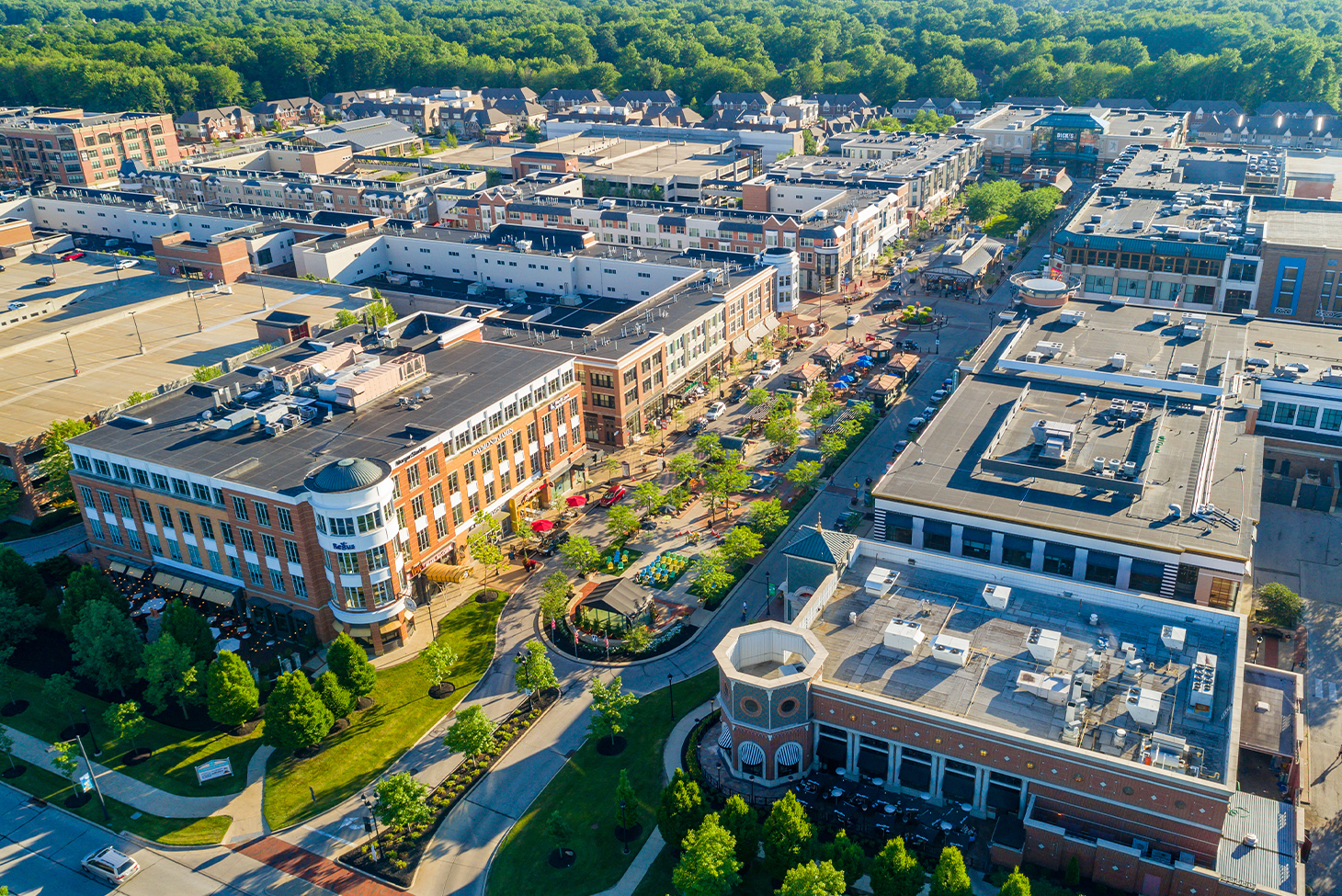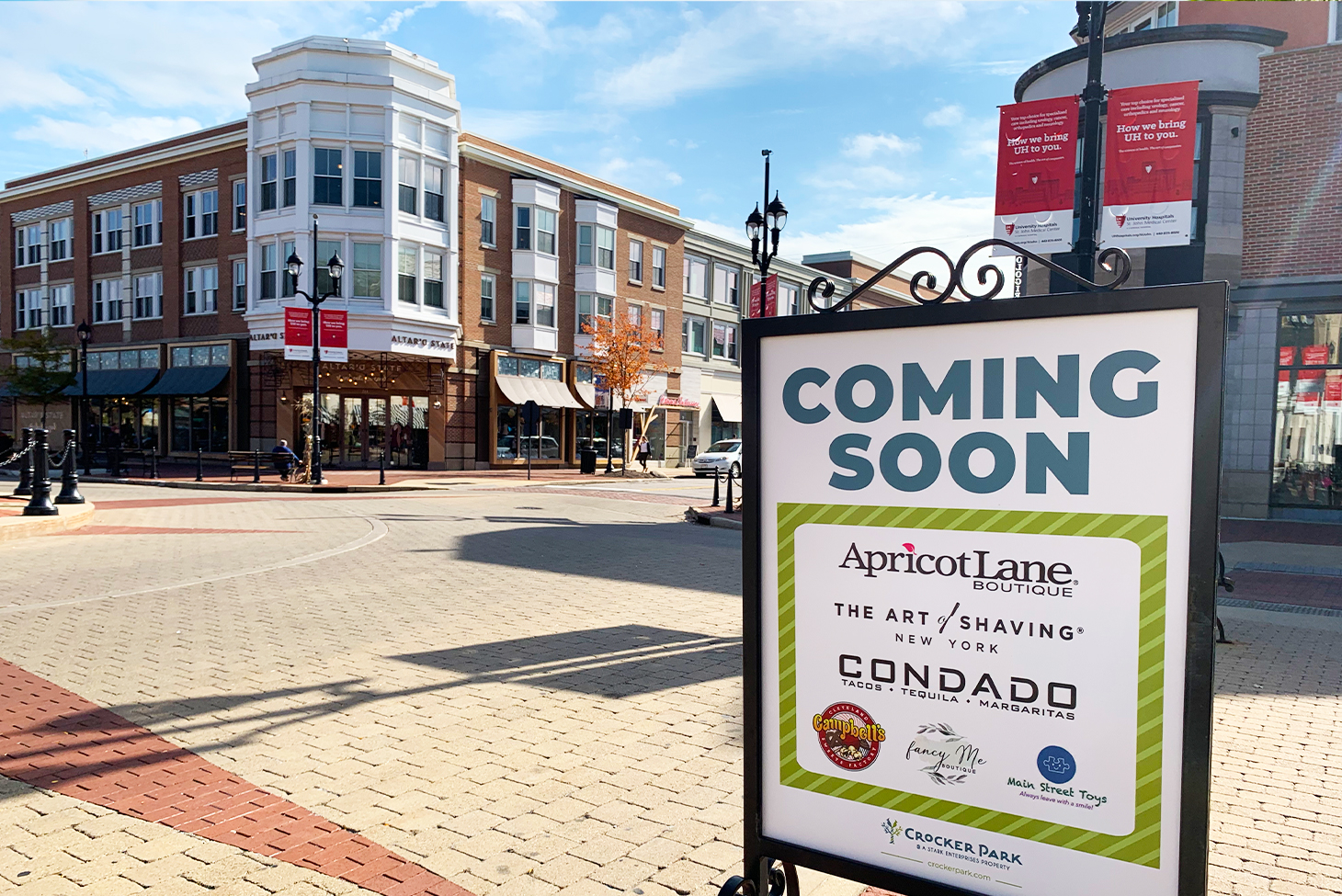E-commerce has inextricably changed the way we shop. There is absolutely no denying that. In the last year alone, 83 percent of U.S. consumers made a purchase on Amazon.com.
The rapid and mass adoption of online retail, coupled with nationwide store closures and alarming media reports, has given rise to the narrative that traditional brick-and-mortar can no longer compete in the digital age and will therefore fall by the wayside. While there is no question that online shopping has made a significant and damaging impact on malls and shopping centers, these reports paint an incomplete picture.
Over the past year, our Crocker Park mixed-use lifestyle center, in Westlake, Ohio, has lost national brands Destination Maternity, Gymboree and Charming Charlie. On the surface it is easy to attribute this to disinterest from consumers, loss of market share to competitors or online shopping. While partially true, many of these large chains filed for bankruptcy due to an excess of debt and rapid overexpansion, paired with an inability to adapt. In fact, a staggering 75 percent of closures came from the top 20 retailers, which announced that they would be closing stores. Meanwhile, there was a 56 percent overall increase in the number of chains adding stores in 2019.

So the issue does not necessarily lie with a dwindling number of brick-and-mortar shops (or shoppers), but rather with a lack of innovation. As such, we are seeing retailers that are proactively revamping the shopping experience for their customers, whether it is renovating their spaces to serve as part shop, part showroom, or merging physical and retail efforts with concepts like in-store warehousing to facilitate on-site pickup of online orders. Sustaining a cohesive brand with a strong value proposition across all channels, both real and virtual, has become paramount in appealing to a growing marketplace of brand-conscious, experience-driven buyers.

Simultaneously, we are seeing a significant rise in openings from locally owned brands. Just this year Crocker Park has welcomed seven new Ohio-based retailers and restaurants. The local movement has emerged as an intriguing new layer in retail, signifying that there is a willing marketplace and new opportunities for growth in brick-and-mortar for nonestablished brands. Furthermore, the influx of local businesses in step with the exit of national brands hints at a larger shift amongst consumers to put their money behind local brands.
Either way, success in today’s retail industry demands symmetry. It is not about pitting one side against the other, or about choosing between online shopping and brick-and-mortar retail. There will never be one without the other. At the end of the day, it is about striking the right balance between shop and showroom and between national and local, and about continuing to adapt to a shifting consumer base that is highly sensitive to the concepts of access, convenience, price and service. Brick-and-mortar retail will never die in the face of online shopping; it will continue to evolve alongside and enmesh itself with its digital counterpart in order to unlock new ways to serve the wants and needs of the market.
Visit StarkEnterprises.com

Ezra Stark
COO, Stark Enterprises